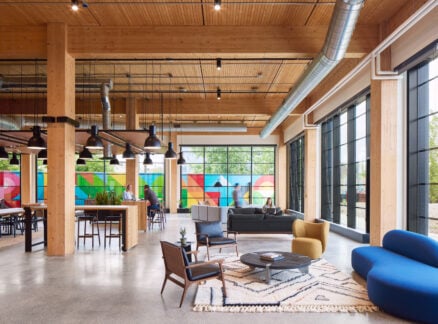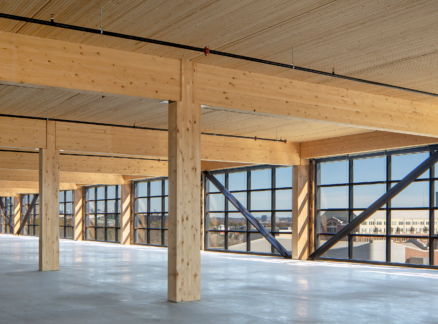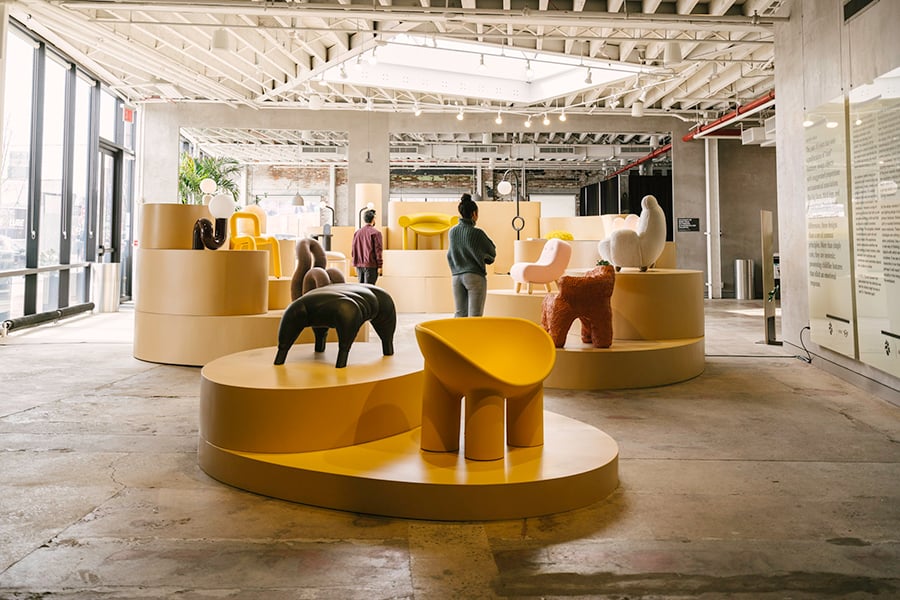
March 11, 2019
Minimalism’s Softer Side: New Exhibition Explores the World of Neotenic Design
Neotenic Design highlights the neotenic design trend, whose objects feature anatomical associations and soft, exaggerated proportions.
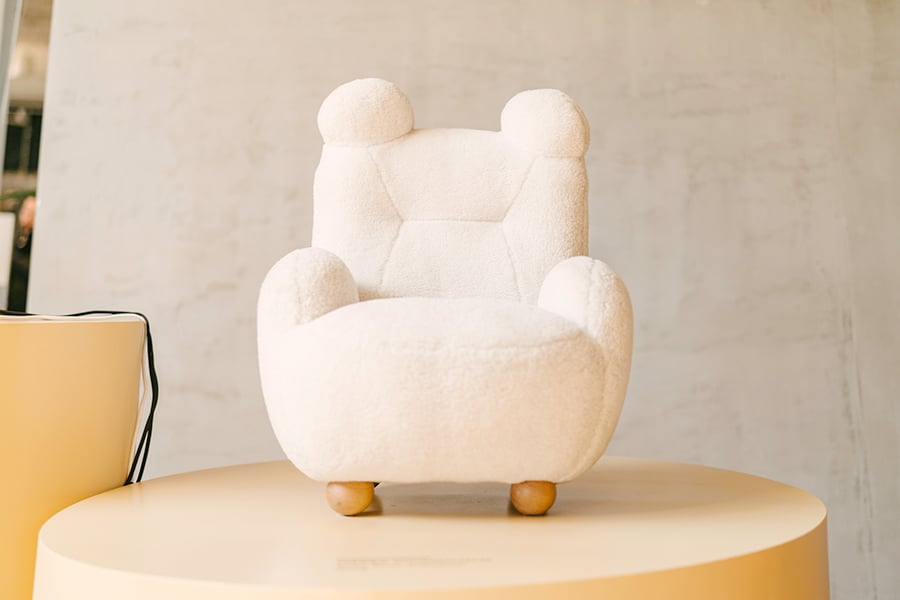
Blobby. Pudgy. Zoomorphic. These are phenotypes that designers and curators Justin Donnelly and Monling Lee use to describe the childlike, inorganic furniture and objects at their exhibition, Neotenic Design, now on view at the A/D/O design center in Brooklyn. Visitors are invited to experience works including Jack Rabbit Studio’s cherubic Chubby Chair, Färg & Blanche’s poised Succession Stool, and Jumbo NYC’s twisting Neotenic Floor Light.
While neoteny is a distinct aesthetic, it’s not one that necessarily has dedicated followers. Donnelly tells Metropolis that “most of the designers we interviewed for the exhibition told us that they did not intentionally set out to create childlike forms. Instead, we heard time and time again about interest in simplicity and reduction.” For example, Swedish architect and designer Jonas Wagell refers to his work of this kind as “softening minimalism.”
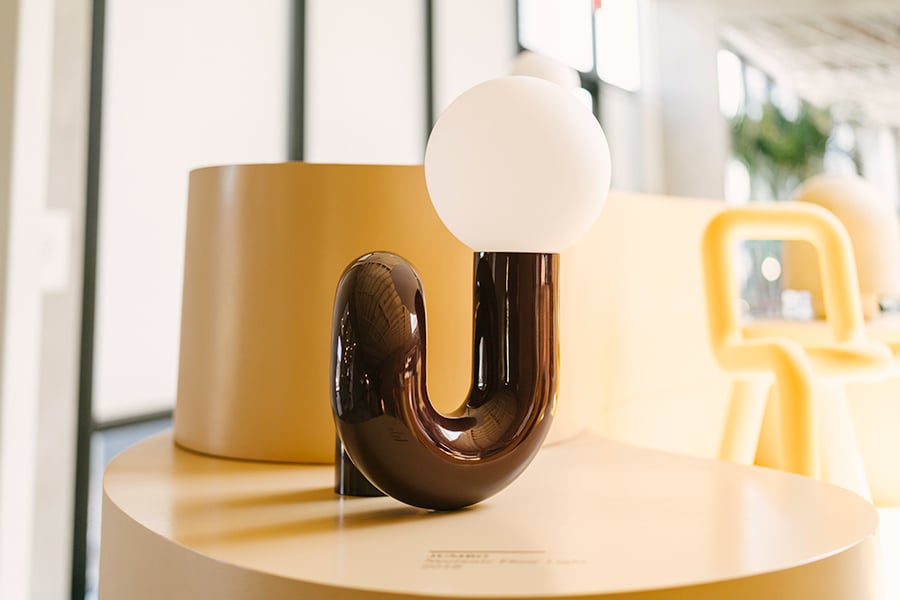
But the human response to such soft, thick, warm, and mono-material compositions could also be simply summarized as the “cute factor.” Scientific research suggests that such juvenile forms alter the way humans feel in a space, helping to reduce stress and anxiety.
The exhibition design is itself neotenic, accentuating the calming effects of the objects on view. Flesh-colored podiums of varying scales and shapes create an almost womb-like respite in A/D/O’s otherwise sharp, rectilinear space. The show’s intimate layout facilitates a slow-paced and contemplative circulation. At the exhibition’s opening, this helped encourage discussions among visitors (in contrast to design shows’ typical omnipresent Instagramming).
“It might take time for some of the more iconic pieces to resonate in the marketplace,” says Donnelly. “Sometimes an unusual design takes some aging before the market is ready to embrace it.”
Neotenic Design is on view from March 5–March 28.
You may also enjoy “5 Futuristic Materials That Could Reshape Architecture and Design.”
Would you like to comment on this article? Send your thoughts to: [email protected]














